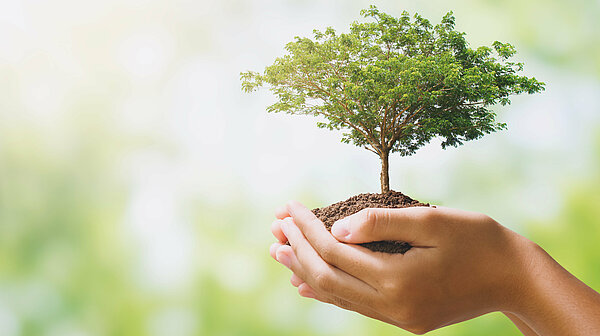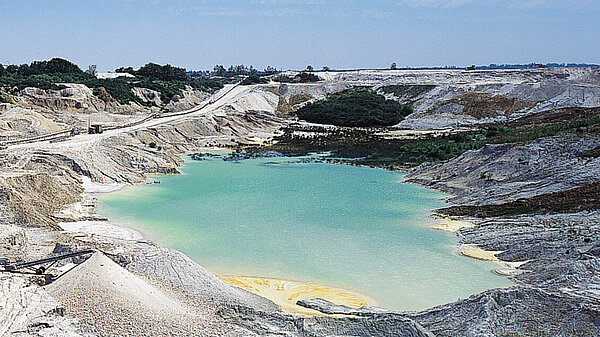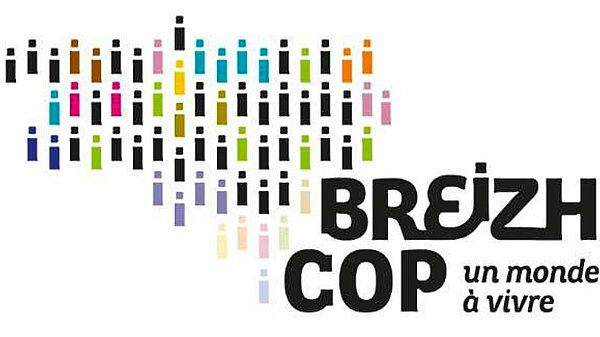SOKA's ecodevelopment policy

SOKA is renowned for its environmental management policy and was certified ISO14001:2015 in 2005. This standard is now an integral element of Corporate Social Responsibility.
SOKA is registered as a Classified Installation for Environmental Protection and is subject to a strict regulatory framework. Following a public inquiry, the prefectoral decree authorising operations was renewed in June 2019 for the next 30 years in Quessoy (France). Regulatory monitoring tests are carried out on a regular basis.

Managing the carbon footprint
SOKA adheres to regulatory requirements such as measuring consumption and reducing greenhouse gas (GHG) emissions by adjusting its working methods and implementing adapted logistics which are a step ahead of the game in terms of risk management and treatment.
The sites are restored as operations are carried out. In Quessoy (France), the extraction of kaolin does not generate waste and the few metres of soil which are removed are reused to carry out on-site landscape actions in partnership with local environmental associations and agricultural training schools. Every year, SOKA presents its environmental actions and their results to local residents. SOKA also applies its communications strategy to its numerous site visitors: schools, businesses and associations.

Reducing the environmental impact
SOKA's good environmental practices are mirrored throughout the Company. Waste reduction is necessary and is observed by all at SOKA: use of washable fabrics as an alternative to non-recyclable disposable paper; use of reusable glasses and cups to avoid using plastic cups, etc.
In this way, water consumption is reduced to a minimum. SOKA operates a closed wash circuit (no waste) for refining its kaolins with several adapted lagoon filtering stations near the mineral deposits for water recycling. SOKA only uses rainwater for its operations and does not use groundwater or river water. The hectares of SOKA's unexploited land are loaned free of charge to local farmers for agricultural purposes.

The energy transition
SOKA’s circular territorial economy policy means that it is increasingly involved in its environmental context, particularly energy consumption management.
In cooperation with regional stakeholders, SOKA is researching creating a boiler fuelled by class B waste wood to dry kaolin, as an alternative to natural gas.
SOKA has taken part in various technical and environmental, risk management and legislative training programmes to play its part in the energy transition: - Read more



